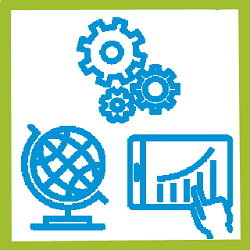Products

The HESRi was initially introduced in 2017, establishing the groundwork for gaining commitment from various countries in the WHO European Region and gathering the necessary indicators central to the research. Its products were launched in June 2019 at the WHO High-level Conference on Health Equity, and will deliver the following:
WHO European health equity dataset
A dataset of health status (mortality, morbidity, well-being) at micro level, with indicators of (i) living conditions, (ii) community and personal capabilities, (iii) employment and working conditions, (iv) social and health protection and income security.
- The dataset is available as an online interactive tool, to browse and download charts and data.
- Country snapshots, which are a selection of 30 indicators derived from the dataset, with a focus on the appropriate Sustainable Development Goal targets, are also available to support country-specific health equity analysis (the snapshots are available upon request).
Policy Guidance in reducing health inequities
A baseline with which to track policy commitments to health equity, analysing and reporting on the implementation of key policies designed to impact on the conditions needed for all people to live a healthy life.
- Health Equity Policy Tool. A framework to track policies for increasing health equity in the WHO European Region. This tool has been developed to support WHO Member States and partners to strengthen the implementation of these commitments and strategies through specific policy actions. To accelerate progress in reaching those being left behind because of poor health, and to prevent others from falling behind, policy action is required that reaches not only the most vulnerable but also those disproportionally at risk of avoidable poor health.
- Reducing inequities in health across the life-course. These 3 papers take a life-course approach, outlining key health equity issues and their social determinants, and how policy-makers can act to address these. One paper concerns early years, the second one is about young adults and the third one concerns healthy ageing for those later in life:
Supporting tools
A scientific expert review process that identified societal and institutional factors that singly and in combination offer new explanations on why progress on health equity has not been as fast as had been hoped.
- Driving forward health equity. The role of accountability, policy coherence, participation and empowerment. These 4 papers highlight how accountability, policy coherence, participation and empowerment mechanisms and processes can play a vital role in driving progress on the health equity commitments of Health 2020 and the Sustainable Development Goals.
- Case studies. These case studies illustrate some of the ways in which countries have taken concrete action to address the 5 conditions necessary for healthier, more equitable and prosperous societies.
- Universal basic income policies and their potential for addressing health inequities: transformative approaches to a healthy, prosperous life for all. Universal basic income has become an important reference point when discussing innovative basic income policies as promising alternatives to address shortcomings resulting from the changing nature of traditional employment patterns and work.
- Strategic mapping of institutional frameworks and their approaches to equity. The report aims to provide an insight into the institutional policy context of health equity in the WHO European Region, highlighting factors that may potentially enable, support or hinder the establishment of collaborations among selected institutional partners for the implementation of the Health Equity Status Report Initiative of the WHO Regional Office for Europe.
- Strategic mapping of public perceptions of health equity. This report scans and analyses a series of public opinion surveys conducted across the Region to explore perceptions on health equity-related issues and identify factors that may potentially enable, support or hinder the scale-up and implementation of the Health Equity Status Report initiative of the WHO Regional Office for Europe.



